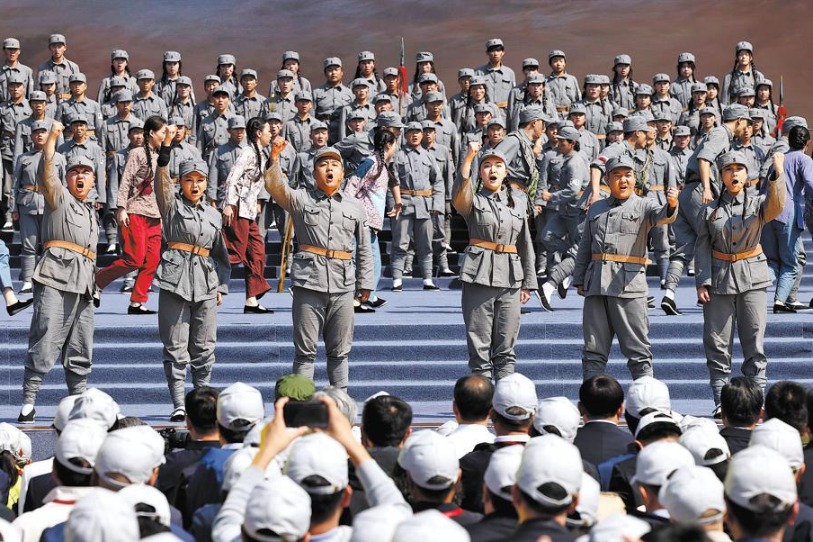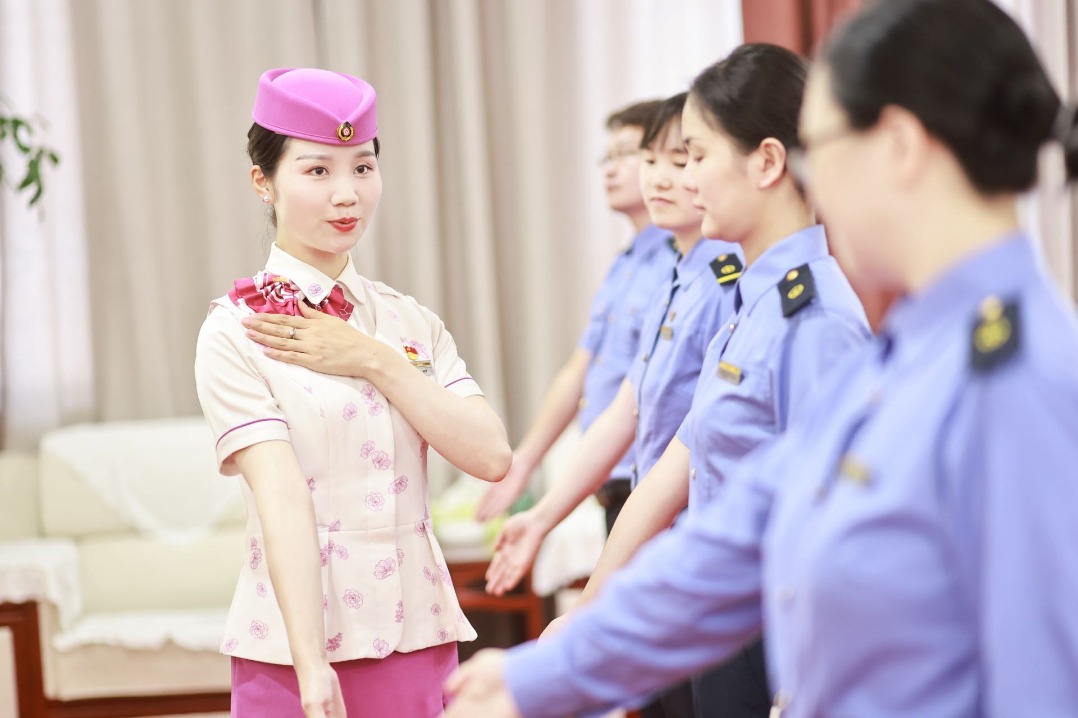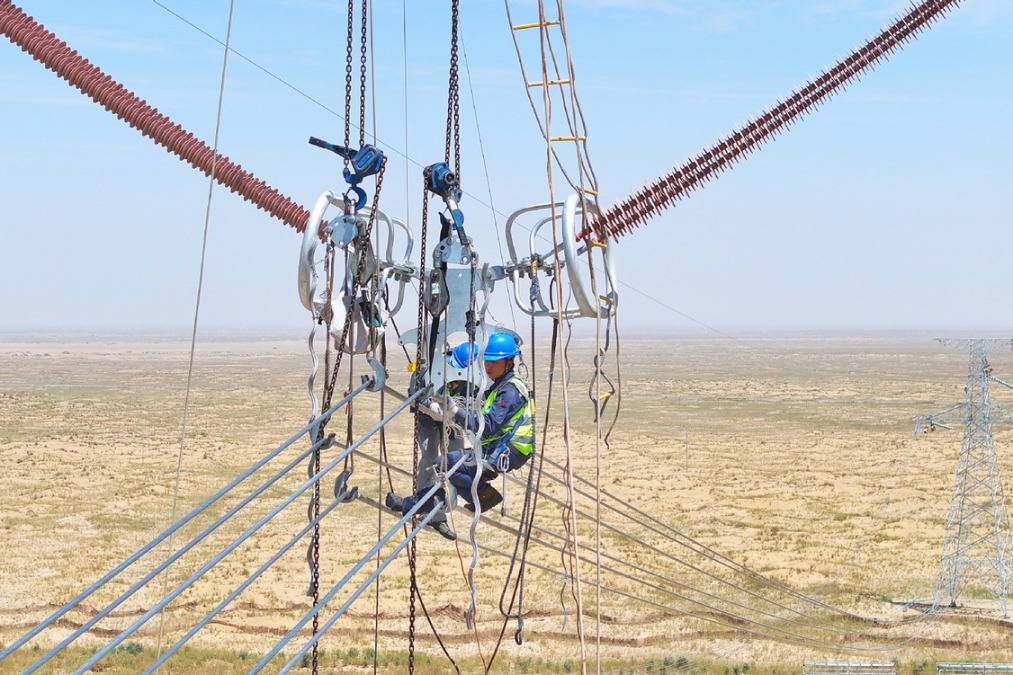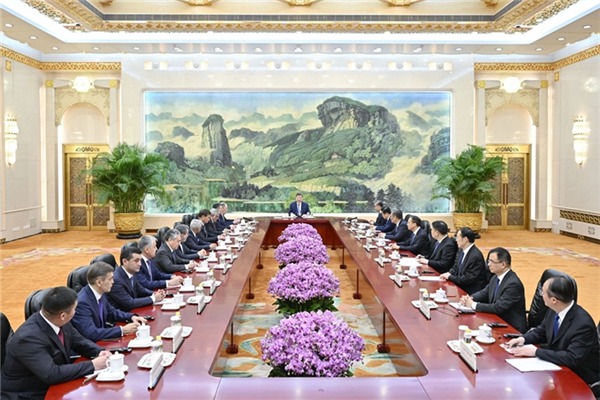Avoiding return to poverty discussed

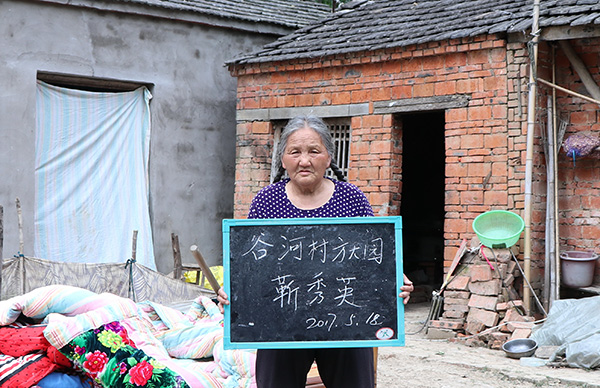
Solid industries that play to local strengths are seen as key
After successfully lifting 68 million people out of poverty in the past five years, China has been urged by national policy advisers to consolidate and prevent disadvantaged communities from falling back into difficulty.
To accomplish this, suggested measures - including cultivating industries that match local advantages, improving education standards and invoking people's desire to climb out of poverty - were offered at the second meeting of the Standing Committee of the 13th National Committee of the Chinese People's Political Consultative Conference, the top advisory body.
Its three-day meeting began on Monday in Beijing.
"Solid efforts are needed to implement major measures such as developing industry to local advantage, improving employment rates and strengthening collaboration on poverty alleviation between the eastern and western regions," Vice-Premier Hu Chunhua said in a report delivered at the meeting on Monday.
Focused assistance should be provided to extremely poor areas, including more financial and land support, and also the improvement of infrastructure and public services, he added.
Luo Zhijun, a standing committee member and director of the CPPCC's Committee for Agriculture and Rural Affairs, said, "Poverty alleviation is a dynamic process. Some families that have been lifted out of poverty may fall back again for many reasons, especially in extremely impoverished areas."
He suggested establishing an alert mechanism based on monitoring of data from health, education and civil affairs departments.
"Once the risk of returning to poverty is discovered, assistance should be undertaken at once," he said, adding that groups newly lifted out of poverty are the easiest to return to poverty again and should be watched closely.
The core means of consolidating poverty reduction accomplishments is the development of industries that produce products that play to local advantages and use e-commerce to sell those products in urban areas, Luo said.
Li Shijie, another standing committee member, said he discovered one way to take advantage of local products and e-commerce to lift local villagers out of poverty in Fujian province.
He said two residents returned from working in the city and opened an online store selling locally grown ginger. They hired members of 30 families, including one daughter from a poor family. She earned about 50,000 yuan ($7,630) a year. Thanks to her salary, the whole family escaped poverty.
Last year, the store sold 125,000 kilograms of ginger at 6 yuan per kilogram. Before the online store was created, local ginger usually sold at 1.6 yuan per kilogram. Li suggested offering better policies to attract talented workers to extremely poor areas, and also training locals to take advantage of e-commerce.
"It should be focused to discover local e-commerce leaders among migrant workers who return to rural areas, as well as college graduates," he said.
Fellow standing committee member Zhu Yongxin added: "Education is a prerequisite for uprooting poverty and strengthening accomplishments in poverty alleviation. It's fundamental at the antipoverty battle."
He suggested providing targeted services for families that fall back to poverty as a result of having school-age children, providing subsistence stipends for junior high and college students from poor families, supplementing household living expenses to allow school-age children to go to school instead of working to support their family and assisting students from poor families in the search for employment opportunities.
Although in the past five years the country has lifted 68 million people above the poverty line - annual per capital income of 2,300 yuan - the battle against poverty continues. Poverty reduction is still considered one of the "three tough battles" that China must win to fulfill its goal of building a moderately prosperous society by 2020.
To achieve that, it needs to lift about 30 million more people out of poverty over the next three years - about 10 million a year. A three-year action plan was made by the central government with the goal of eradicating absolute poverty in 2020. That plan was conveyed to officials in early June.
- China sees 333 million cross-border trips in H1 2025
- Foreign arrivals to China continue to surge in H1
- China champions international ties in cutting-edge research
- Macao SAR govt, liaison office of central govt firmly support decision of Legislative Assembly election commission
- Preliminary exam for highest Tibetan Buddhism degree held in Xizang
- Macao Legislative Assembly electoral commission determines candidate eligibility by law


















